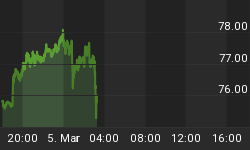It troubles me greatly to know that while the 30 year Treasury bond is yielding a mere 4.6%, we are not locking in that low rate for our newly issued debt. Any thinking American knows it would be best to take advantage of that ridiculously low yield and finance the Treasury's borrowing at the long end of the curve.
However, much like those homeowners who chose to think in terms of weeks not years when evaluating their long term finances, our government has subjected us all to what amounts to the mother lode of all subprime adjustable rate mortgages.
The fact that the Treasury Department must issue a record amount of debt in the ensuing years will put upward pressure on interest rates. Add to that a record-low Fed Funds rate and a $1.7 trillion monetary base, and the prospects for higher inflation and interest rates are fairly certain. So why are those in power refusing to ensure the future solvency of our country?
Here are the relevant facts to make you aware of just how significant this problem really is. The U.S. will sell $42 billion in 2-year notes, $39 billion in 5-year notes and "just" $28 billion of 7-year notes this week alone. That's $109 billion in auctions for the week -- an all time record high! But the most troubling aspect of this auction isn't the sheer volume of debt that must be sold, it is the fact that most of it is being sold on the short end of the yield curve.
The overall debt picture is subject to the same fiscal irresponsibility. Of the total $6,591,740,000 publicly traded marketable securities outstanding, over $5.4 trillion are due in less than ten years. And according to the Department of the Treasury themselves, 55% of that total debt will mature in the next two years!
It remains a mystery as to why our government refuses to lock in a low interest rate for our ballooning debt obligations. Of course the initial outlay of interest would be higher, but wouldn't that be worth it to know we are locking in a rate that is near an all time record low? My guess is since the current budget deficit would be higher if the debt was sold longer term, it is just more politically expedient to mortgage our future instead.
There's no denying the huge gamble that we have undertaken. Because our surging debt load must be rolled over more frequently, we have made a bet that rates will stay low for a very long time. However, we now have in place what amounts to the perfect recipe for creating inflation--low interest rates, easy money and runaway debt. All of which virtually guarantees interest rates will be much higher in the future.
The options subprime mortgage borrowers hoped for of either being able to refinance at a lower rate or sell their homes at a profit never materialized. Instead, many were forced to declare bankruptcy and/or walk away from the properties. Unfortunately, if the U.S. Treasury does not get its fiscal house in order, we may be forced to effectually walk away from our debt either through default or by paying it back in worthless dollars.
*Tired of paying fees while your account value plummets?
Learn about our new performance-based pricing.
Be sure to listen in on my Mid-Week Reality Check
Follow me on Twitter: http://twitter.com/michaelpento















